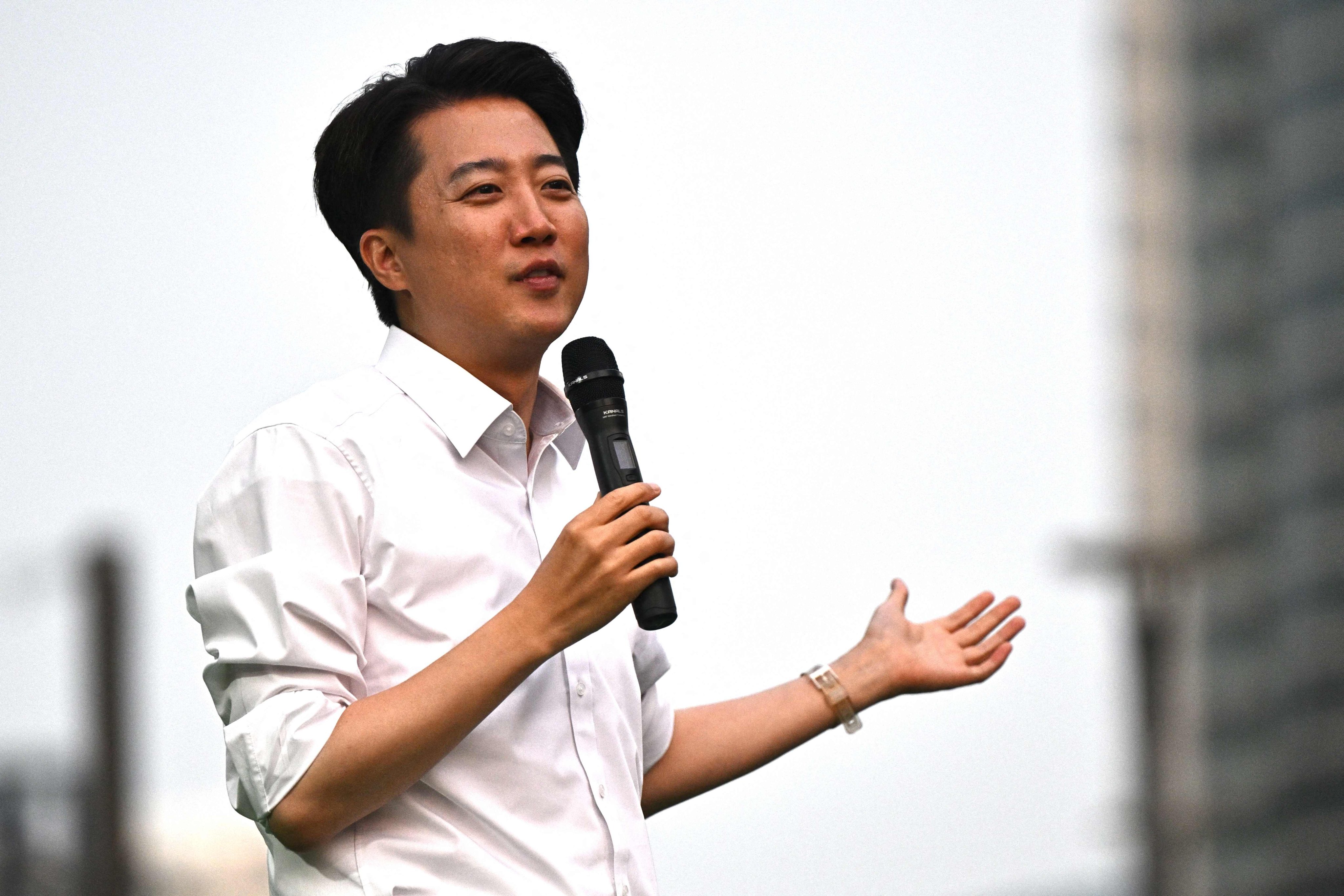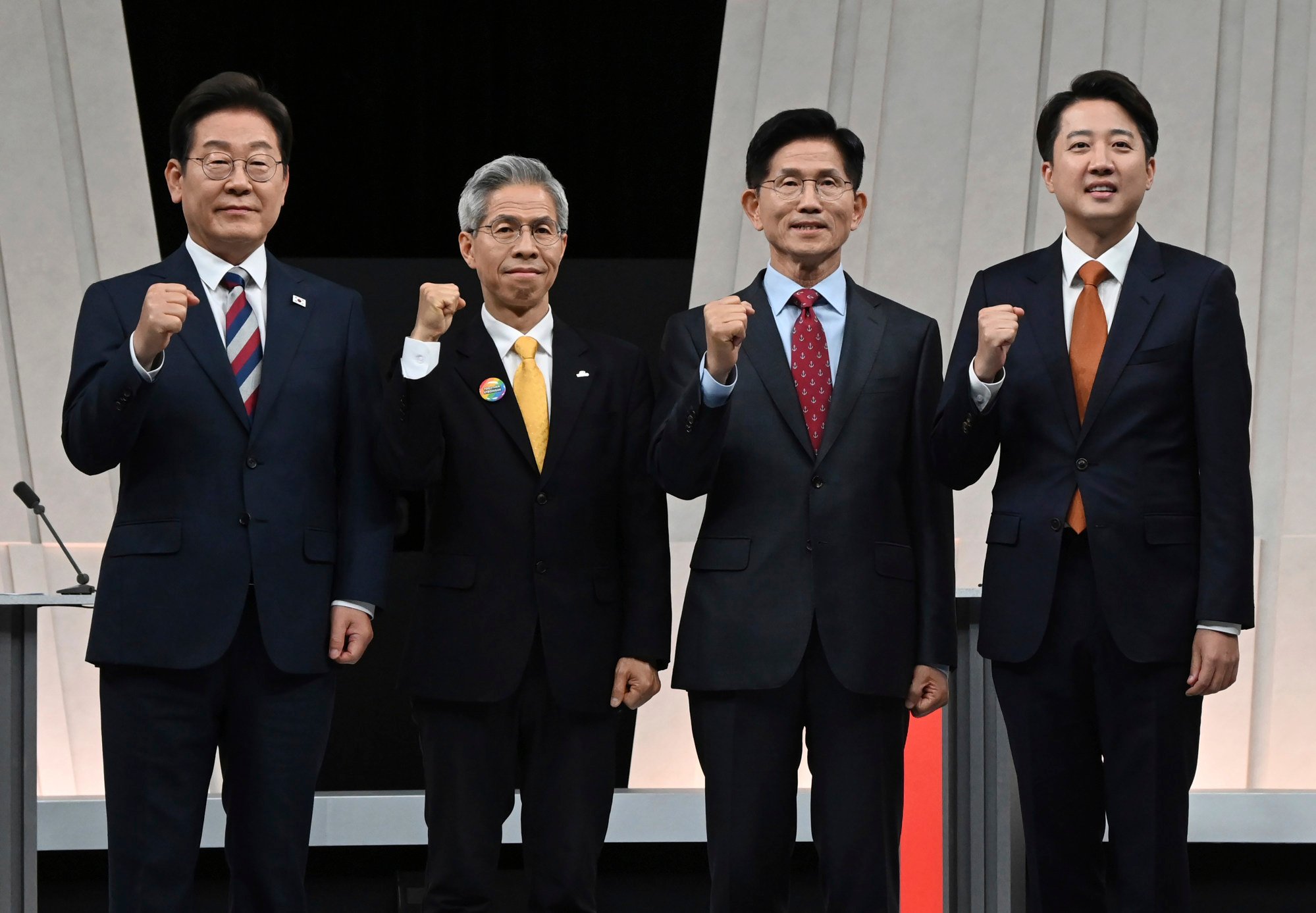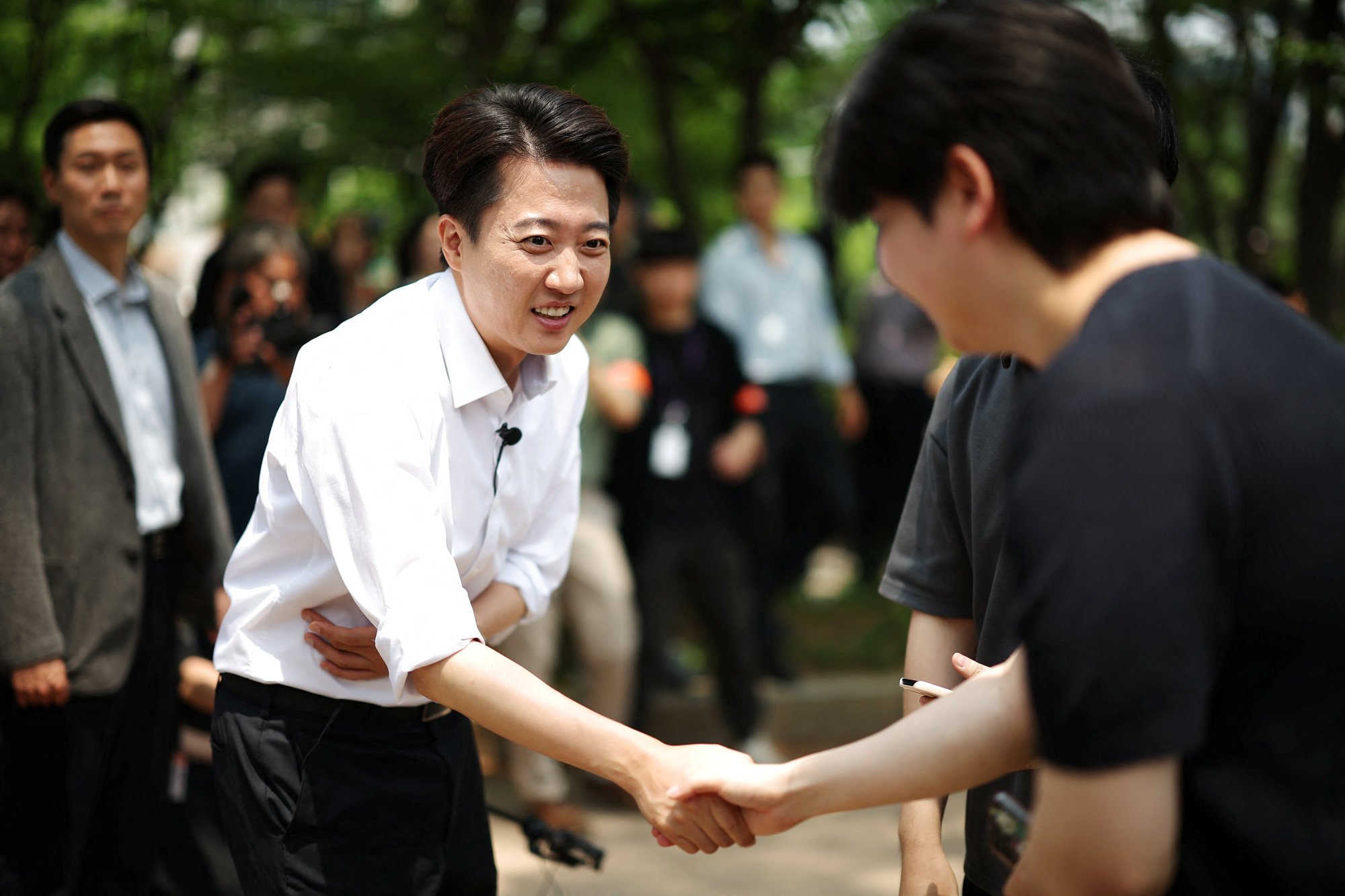South Korean presidential candidate sorry for misogynistic remark at TV debate
Lee Jun-seok of Reform Party drew widespread backlash for asking whether sticking chopsticks in women’s genitals was misogyny

A South Korean presidential candidate has apologised for a sexually explicit comment made during a recent televised debate, in which he asked if sticking chopsticks in women’s genitals was misogyny.
Lee Jun-seok, who leads the minor Reform Party, drew widespread backlash from the public and across the political spectrum for the controversial remark on Tuesday.
The 40-year-old initially doubled down on his remark on Facebook early on Wednesday, before issuing an apology later in the day while speaking to reporters after a campaign stop in Seoul.
“I was aware that some members of the public might have found it uncomfortable, and I sincerely apologise to them,” Lee said, according to Korea JoongAng Daily.

During the final round of Tuesday night’s live debate, Lee had posed a question to Kwon Young-kook – presidential candidate for the Korean Democratic Labour Party – asking, “If someone says they want to stick chopsticks into a woman’s genitals or some place like that, is that misogyny?”
Lee was apparently referring to a scandal involving the son of Democratic Party of Korea front runner Lee Jae-myung, who allegedly posted misogynistic content online around 2020.
Kwon refused to answer the question.
Lee’s sexually explicit language shocked viewers nationwide, including many families with children watching during prime broadcast time, The Korea Times reported. The statement triggered immediate backlash from political circles, women’s rights activists and the public.
Democratic Party chief spokesman Cho Seung-rae released a statement immediately after the broadcast.
“Lee Jun-seok shocked the public … by using language so violent it should never be spoken on air,” he said. “His behaviour is beyond justification, and he must take responsibility for this appalling verbal violence masquerading as debate.”
Lawmaker Kim Young-ho, who was watching the debate with his young son, said he had to switch off the TV and later watched the rest of it alone on YouTube.
The backlash was not limited to the opposition. Shin Dong-wook, a senior spokesman for the People Power Party, also called the remark inappropriate.
Thirty-five petitions related to Lee’s remark were filed to the National Human Rights Commission, the state’s human rights watchdog, according to The Korea Herald. Many complained that Lee’s comment was sexually demeaning to women and too graphic.
The women’s committee of the Democratic Party urged Lee to apologise to the public and resign.
“We cannot help but be angered that hateful and insulting remarks against women were made without any restraint,” they said in a statement.
Kim Yong-min, the Democratic Party’s deputy floor leader for policy, called for Lee to be expelled and banned from all broadcasts.

Lee on Wednesday initially defended the context of his comment, claiming it was intended to highlight “the hypocrisy of the progressive camp”, which he said often criticised hate speech but stayed silent on similar issues within its own ranks.
He emphasised that his remark had been a paraphrased version of an actual statement.
“Those who’ve seen the original will know I actually toned it down … since I was quoting someone, I felt I had no choice,” he said.
According to the Korea Times, Lee has long denied the existence of structural or systemic gender inequality in South Korea, dismissing claims of discrimination against women as a “groundless victim mentality”. The National Human Rights Commission of Korea in 2022 classified this statement as hate speech.
Lee had in 2022 also proposed abolishing the Ministry of Gender Equality and Family, saying it was unnecessary.
Women in South Korea face the widest gender pay gap among the 38 OECD countries and form the bulk of victims of violent crimes in the country.